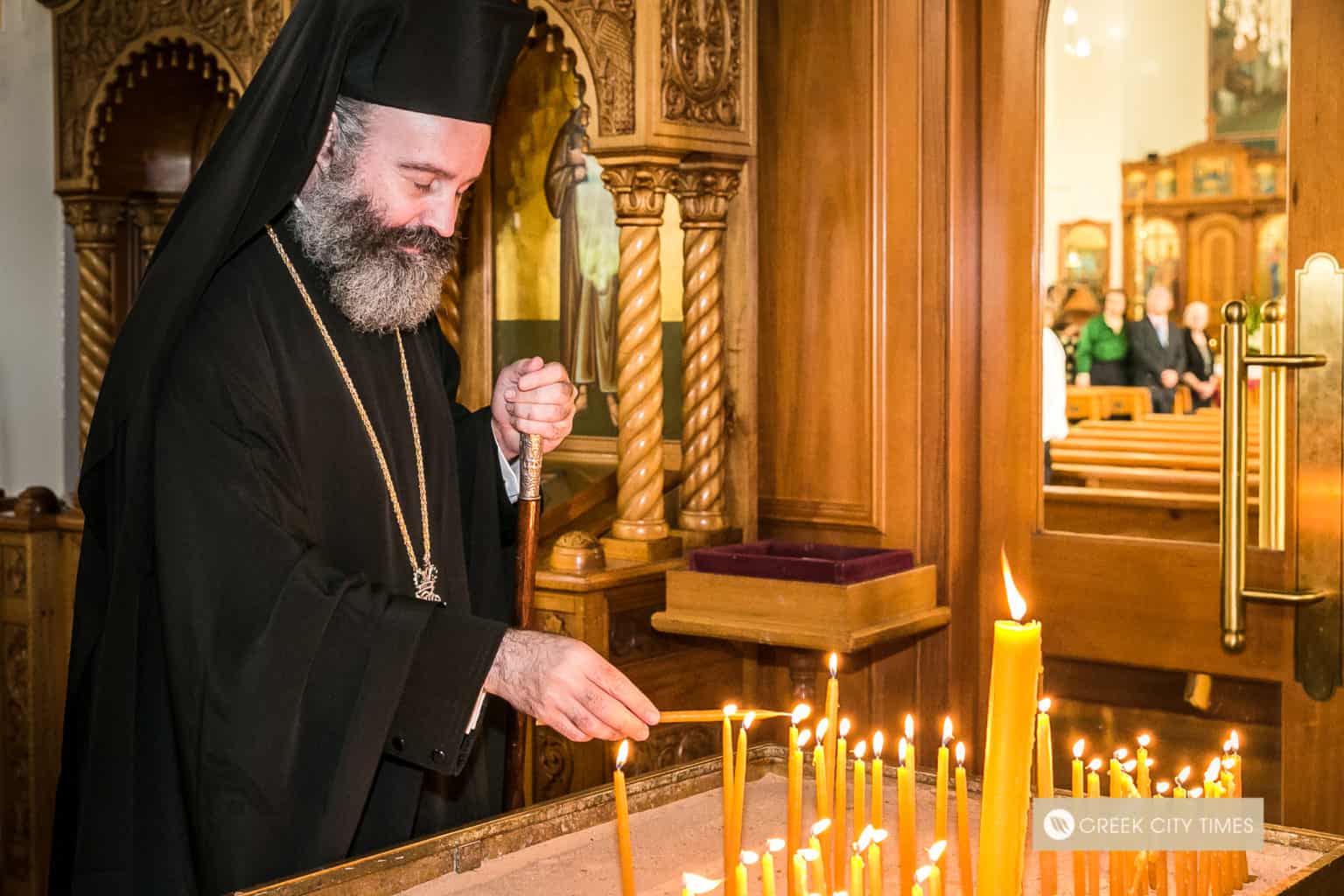A message from His Eminence Archbishop Makarios on the Apodosis of Pascha
by GCT
In an atmosphere of Paschal joy, on Wednesday 27 May, the last day of the Easter period at the Cathedral of the Annunciation of our Lady Theotokos, in Sydney, His Eminence Archbishop Makarios of Australia celebrated the Divine Liturgy for the Apodosis (Leave-taking) of the feast of Easter.
His Eminence addressed the faithful who were in the church, as well as those who were watching the live-stream service, and referred to the festive character of the day where “Christ is Risen” is chanted for the last time, noting that this is the day on which we take leave of the greatest feast of our Church, which is the Resurrection of our Lord.
“In contrast to other Christian denominations, which place great emphasis on the birth of Christ,” he explained, “the Orthodox Church with its rich theology and its spiritual patristic teaching tells us that the feast of feasts is the Resurrection of Christ. This is because, if the Resurrection of Christ were not a real event,” he continued, “then our faith could not exist. Our faith is based on the fact that Christ was born, crucified, descended into Hades and was resurrected. This is the event that we are celebrating, which is why for a long period before the Resurrection (the period of the ‘Triodion’) we are being prepared for this great occurrence, while so many Sundays after the Resurrection are again dedicated to this great event; the event of the Resurrection. Today, therefore, with the leave-taking of the feast, we seal this great day of Christ’s Resurrection and continue with the feasts of the Lord; with the Ascension and, in a short while, Pentecost.”
His Eminence Archbishop Makarios also referred to the contemporary and instructive messages of the day’s Gospel passage, focussing on the Lord’s phrase, “for I did not come to judge the world but to save the world” as St John writes.
His Eminence contrasted this with the fact that “all the world leaders, even the heads of religions, what they have done is to judge.” Moreover, generally in our time people are full of judgements; sometimes they are fair but most of the time they are unfair because these judgements are based on personal ideas, philosophies and also on one’s passions. “And when man’s judgement is based on his passions, it is destructive,” he emphasised, whereas looking at the words of St John of Sinai, who is more commonly known as St John of the Ladder and who wrote the famous book with the 30 steps, he emphasised that we must judge someone when we are certain that we love that person.
In conclusion, His Eminence stressed that our judgement must be based on love while paternally exhorting to seek in our neighbour not his faults, but his gifts.
*Image by Nick Bourdaniotis/Bourdo Photography (Copyright)
Spread the love
- 3
- 2
- 5
Shares